The 25 best movie endings of all time, from Casablanca to Avengers: Infinity War
From shocking twists to famous last words, we look back at 25 of the best movie endings in cinema history
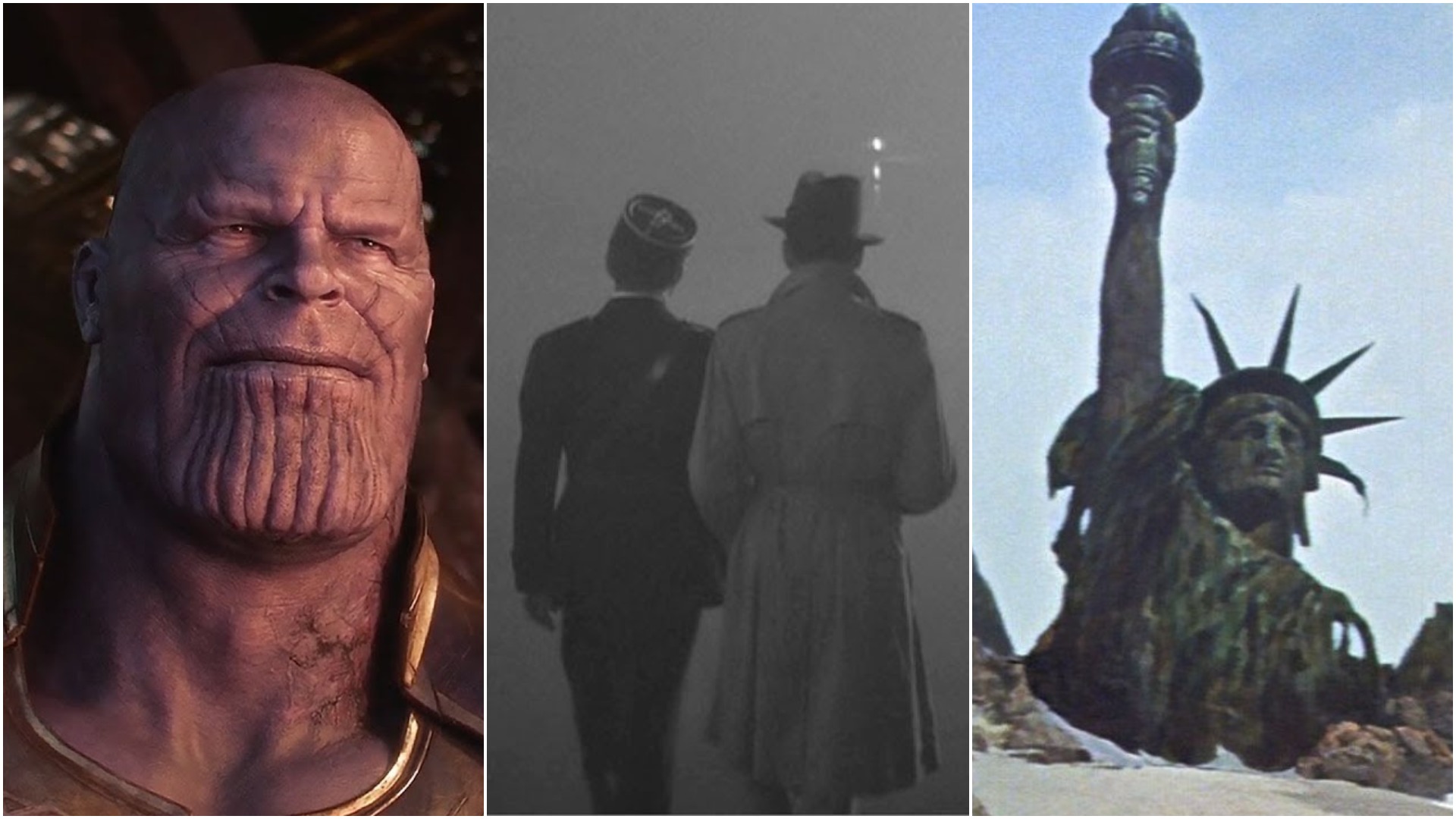
The final scenes of a movie can make or break an entire picture. However good the previous couple of hours, if the last five minutes go spectacularly wrong, you could be looking at the difference between a classic and an also-ran. The best movie endings should feel consistent with what’s come before and emotionally satisfying. Within those caveats, there are tons of great ways to close a film – the only boundaries are a filmmakers imagination and, just as importantly, talent.
You can have the credits roll after a massive cliffhanger, have your heroes going down in a blaze of glory, let the bad guys win, or make the audience question everything they’ve just seen with a killer twist – in fact, there are enough memorable twist endings in cinema to fill an entire feature. All of the above – and many more – are represented in our list of the best movie endings of all time.
Spread across 76 years of cinema history, the 25 movies are listed chronologically, rather than being ranked – frankly, putting them into a countdown would have melted our minds. How do you decide that the twist ending of The Usual Suspects is better than the emotional close of Casablanca? That Planet of the Apes’ big reveal trumps The Italian Job’s literal cliffhanger?
And with this being a list of the best movie endings, it should go without saying that we’re going to be telling you what happens at the close of a lot of films, so there are many, many spoilers ahead. You have been warned…
Casablanca (1942)
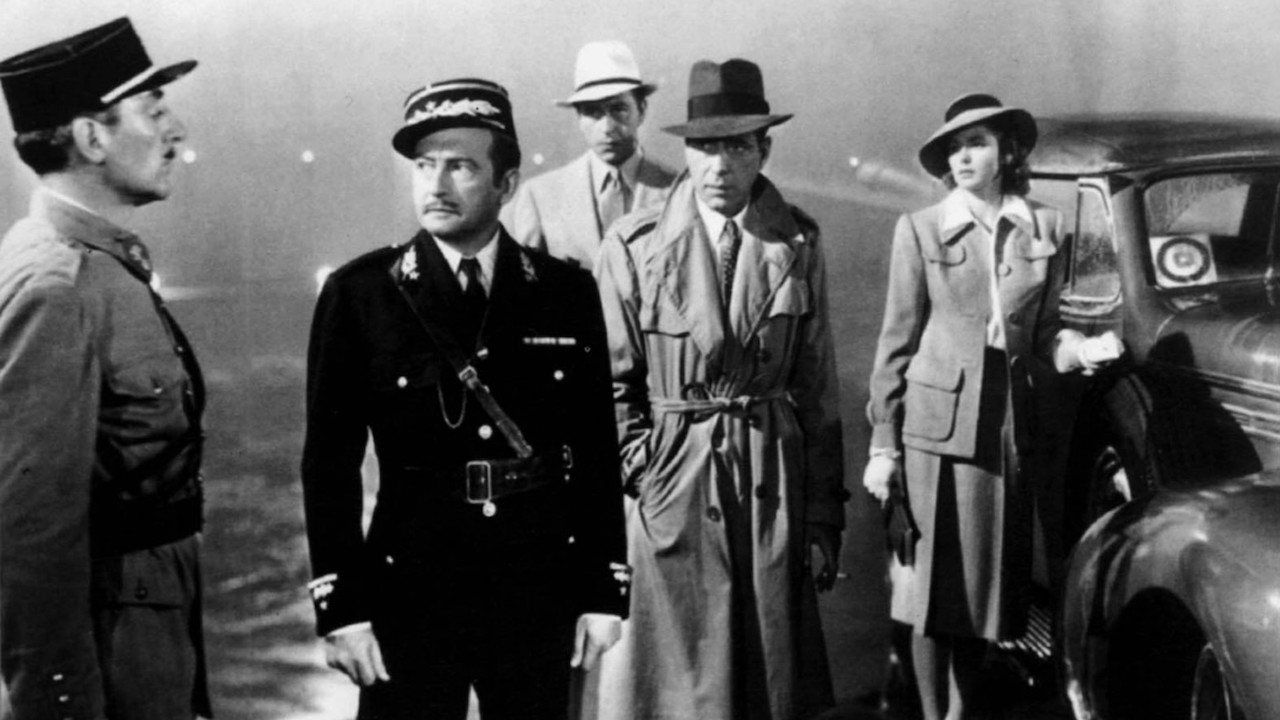
Arguably the greatest propaganda film of all time – if you’re ever in any doubt about doing the right thing in wartime, just think, “What would Rick Blaine do?” – also has one of the best movie endings. Rick could have Ilsa, the love of his life, stay in Casablanca with him, but instead he sacrifices his happiness to make sure she boards a plane bound for Portugal with her husband, resistance fighter Victor.
Rick’s bittersweet farewell speech is one of the most quoted of all time – “You’ll regret it. Maybe not today, maybe not tomorrow, but soon and for the rest of your life”; “We’ll always have Paris”; ”Here’s looking at you, kid” – and has made generations of viewers weep. At least Rick gets the consolation of hanging out with his new friend, the dodgy chief of police. “Louis, I think this could be the beginning of a beautiful friendship.” Told you it was quotable…
Some Like it Hot (1959)
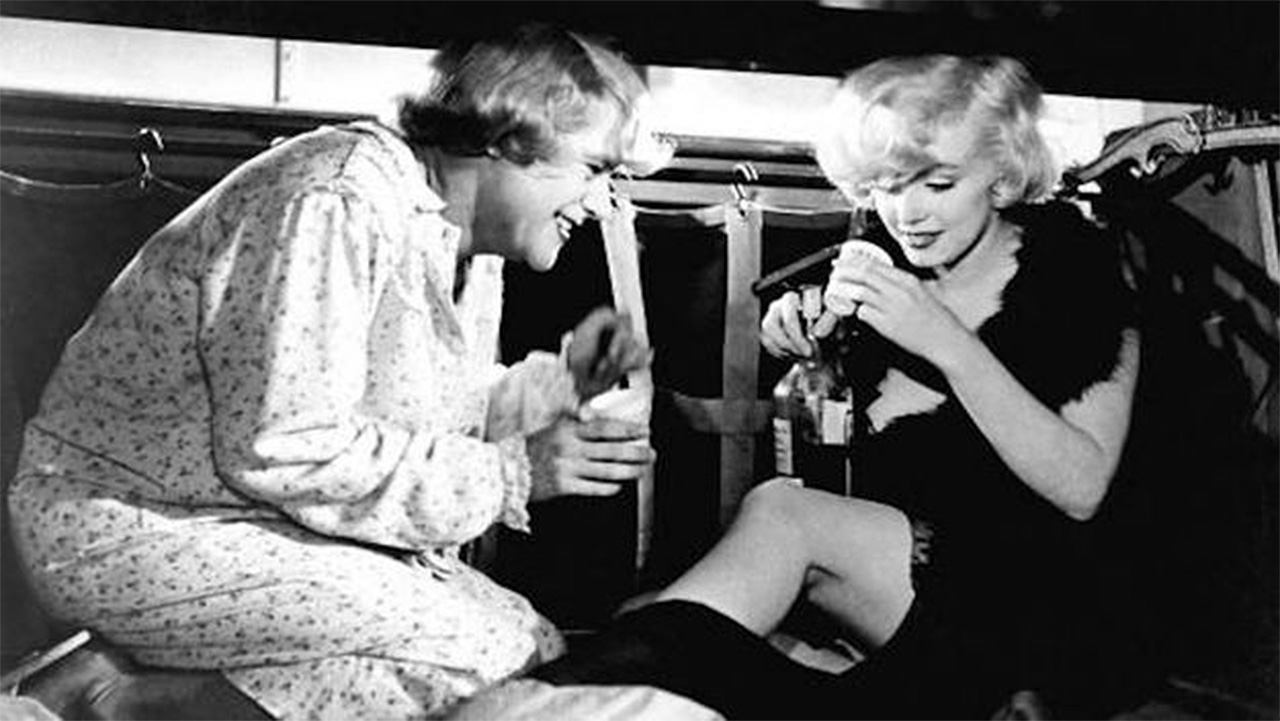
Like Citizen Kane and The Third Man, Billy Wilder’s classic comedy is a shoo-in for most critics’ countdowns of the best movies of all time. What Some Like it Hot has over its rivals, however, is arguably the greatest final line in cinema. Having spent most of the movie masquerading as a woman to hide from gangsters, double bass player Jerry makes such an endearing Daphne that ageing millionaire Osgood takes a shine to him – and won’t take no for an answer to his proposal of marriage.
Bringing all the latest movie news, features, and reviews to your inbox
Increasingly exasperated as his excuses fall flat, Jerry resorts to pulling off his wig and telling Osgood, “I’m a man!” The unfazed Osgood simply replies, “Well, nobody’s perfect” – and there’s not much you can add to that.
Dr Strangelove or: How I Learned to Stop Worrying and Love the Bomb (1964)
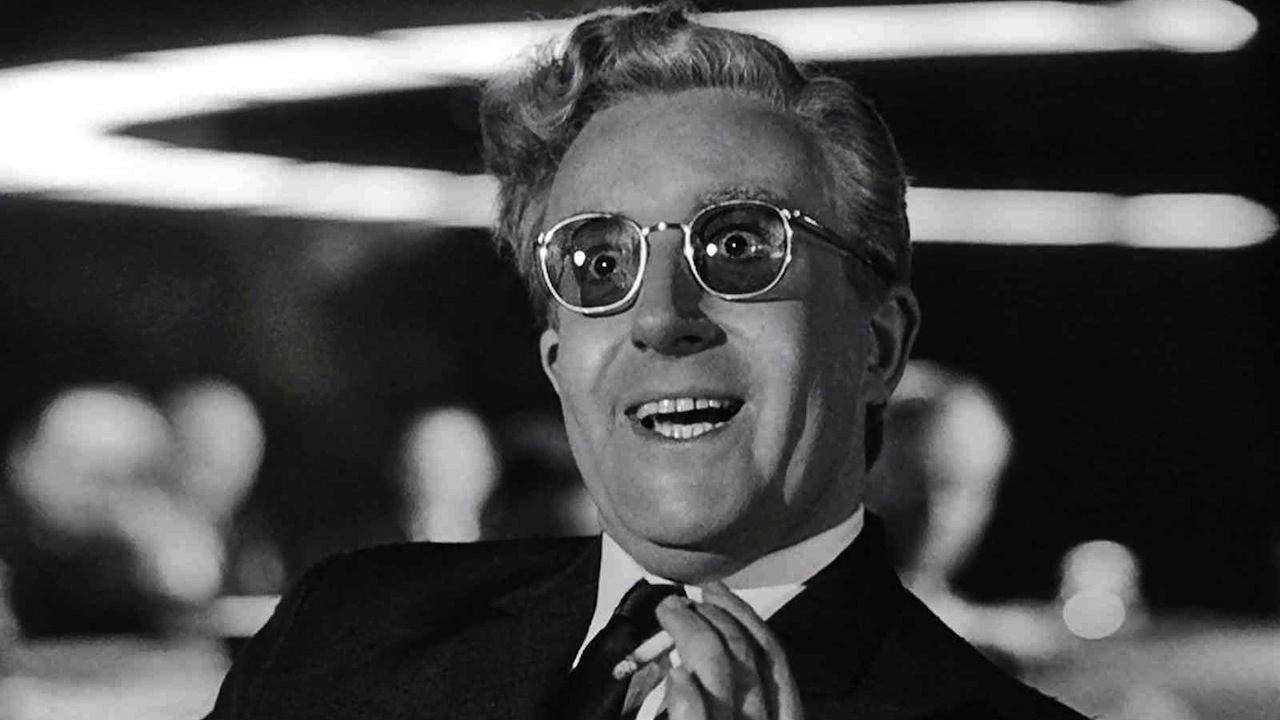
Made at the height of the Cold War, Stanley Kubrick’s nuclear war satire may be a comedy but it doesn’t take the easy option. Indeed, few serious dramas of the era would have dared to end the world in the sort of mutually-assured-destruction scenario that plays out at the end of Dr Strangelove.
After an American bomber fails to receive the message that their mission has been aborted, the Soviets retaliate and the movie ends with a montage of monochrome mushroom clouds – backed by a soundtrack of Vera Lynn’s World War 2 standard “We’ll Meet Again”. It’s one of the best movie endings because it’s simultaneously funny, tragic and powerful. The close of Terminator 3: Rise Of The Machines went down a similarly nihilistic route, and the sight of the missiles raining down is, by some distance, the most memorable bit of the movie.
The Graduate (1967)
Could this be the most unromantic romantic movie ending of all time? With his ex-girlfriend Elaine (daughter of the famous Mrs Robinson) set to marry another man, eponymous graduate Ben Braddock races across LA to interrupt the wedding. After his car breaks down, it turns out a breakneck sprint isn’t enough to get him to the church on time, and he arrives too late to stop Elaine tying the knot. But as he screams her name from the balcony, she eventually calls back and decides to abandon her groom to go with Ben – despite the protestations of everyone else.
There’s a sting in the tail, however. After the euphoria of escaping the scrum in the church, the new couple end up leaving on a bus – but it’s not necessarily a happily ever after. The Simon and Garfunkel-backed final shot of the pair on the back seat – Elaine still in her wedding gown – shows two people thinking, “What the hell have I done?” An idealised vision of the ’60s evaporates in an instant.
Planet of the Apes (1968)
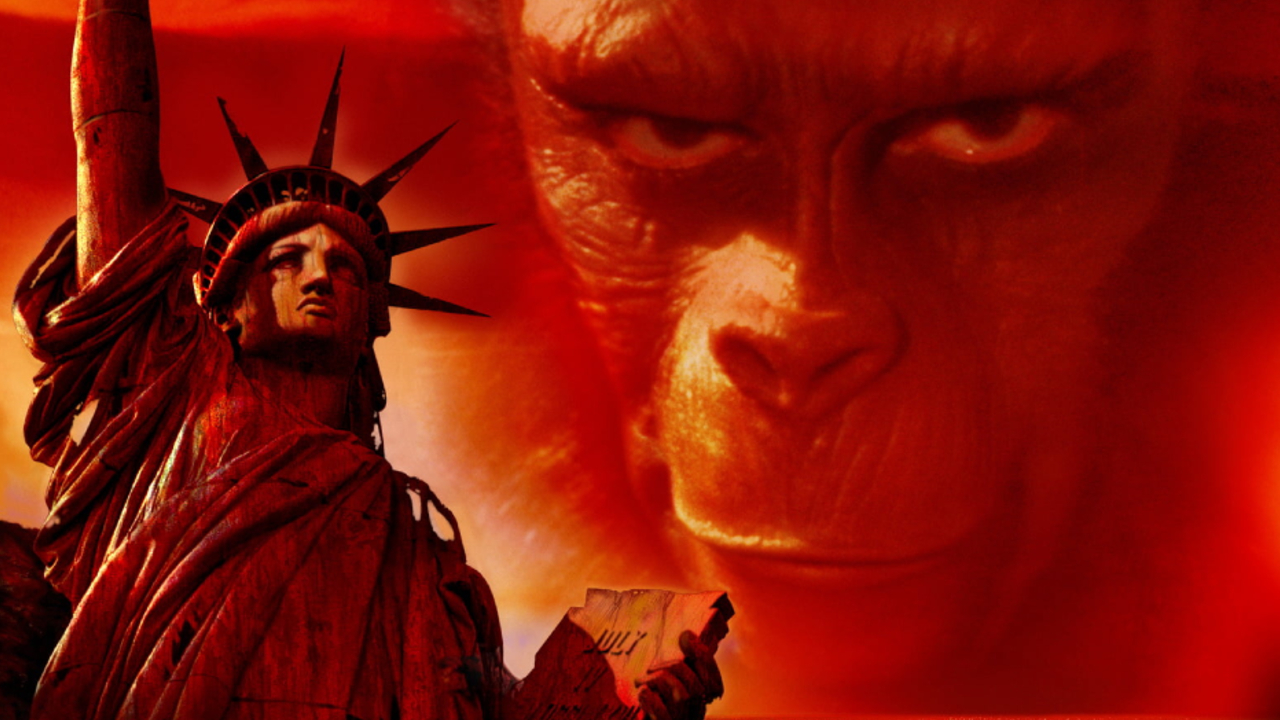
Undoubtedly one of the best movie endings and probably greatest final reveal in cinema history. American astronaut Taylor has been through hell as the prisoner of a bunch of intelligent, talking apes, but it feels like things are looking up when he rides to freedom across the wastes of the Forbidden Zone. It’s already been established that the Planet of the Apes was home to an advanced human civilisation before the simians took over, but that doesn’t prepare Taylor for the ultimate kick in the teeth.
The Statue of Liberty is usually an impressive, spectacular sight, but nobody expects to see it on the beach of an alien planet. It turns out he’s been on Earth all along, and that the human race had obliterated itself with nuclear weapons. “Those bastards finally did it,” indeed.
On Her Majesty’s Secret Service (1969)
James Bond doesn’t usually deal in emotions – they tend to get in the way of being a lethal assassin – but the end of George Lazenby’s only outing as 007 packs a real punch. Just married to Diana Rigg’s Tracy di Vicenzo, Bond has stopped by the roadside with his new wife when Blofeld and his henchwoman Irma Bunt perform a clinical drive-by shooting.
Tracy is shot in the head, leaving Bond to cradle her lifeless body. “It’s quite all right, really,” he tells a passing policeman. “She’s having a rest. There’s no hurry, you see. We have all the time in the world...” Even 50 years later, Bond has never seemed so human – not even in the brilliant Casino Royale.
The Italian Job (1969)
The cinematic embodiment of the swinging ’60s was always going to face a tricky dilemma when it came to wrapping things up. Charlie Croker and his gang of Mini-driving crooks are so damn likeable that you’d never want anything bad to happen them, but, at the same time, such a family-friendly caper couldn’t really end with a bunch of cons getting away with the loot.
The Italian Job has its cake and eats it, however, as the team pulls off the gold bullion heist of the century in Turin, seemingly driving away to freedom until their bus loses control and ends up dangling precariously over an Alpine ravine in one of cinema’s most literal cliffhangers. As everything weighs in the balance – thieves at one end of the bus, gold at the other – Croker makes sure the audience is left hanging too. “Hang on a minute, lads. I got a great idea…”
The Godfather (1972)
Decades before Breaking Bad delighted in showing a good man’s descent to the dark side, Francis Ford Coppola’s mafia epic wreaked similar havoc on Michael Corleone’s soul. As the former golden boy and war hero ascends to the head of his crime family, he goes to brutal lengths that even his late father, Don Vito, would never have dared. As well as engineering the simultaneous last act assassinations of the heads of the rival Five Families, Michael arranges the murder of his brother-in-law, Carlo, in punishment his part in older brother Sonny’s death.
The most chilling moment comes at the climax, as Michael calmly tells wife Kay that he had no part in Carlo’s killing – coldly adding that she should never to ask about his business again. The closing shot, where one of Michael’s henchmen closes his office door in front of her, is final proof that the good man she married is long gone.
The Wicker Man (1973)
There’s never any doubt there’s something sinister going on when devout Christian policeman Sergeant Howie arrives on the remote Scottish island of Summerisle to investigate the disappearance of a young girl. But it’s not until the final act that you realise he’s the unwitting pawn lured to the island as part of the islanders’ plan to sacrifice a virgin in a pagan ritual.
There’s something insidious and relentless about the way the trap slowly closes around Howie, and as soon as he’s shut inside the giant wicker man of the title, you know there’ll be no escape from his fiery grave. Uncompromising, dramatically perfect, and the final shot of Howie trapped inside the burning monument is one of the most powerful in cinema history.
Carrie (1976)
The high school prom has ended in disaster and Carrie White has literally brought the house down, burning herself and her domineering mother to death in the process. It feels like the drama in Brian De Palma’s classic Stephen King adaptation is all done and dusted when we cut to a soft-lit sequence where sole survivor Sue Snell walks through a graveyard to lay flowers on Carrie’s grave.
Then Carrie’s hand unexpectedly shoots out of the ground, grabbing Sue who wakes up screaming. Shock codas are now the norm in horror movies, but it was Carrie’s hand that drew the heart-stopping blueprint, and deserves a place in any list of the best movie endings.
Invasion of the Body Snatchers (1978)
Hollywood has revisited the sci-fi tale of humanity being replaced with sinister, emotionless pod people on numerous occasions, but Philip Kaufman’s 1978 vintage is the best of the bunch, the product of the era of classic paranoid political thrillers. This addition to the pantheon of the best movie endings is a brilliant piece of misdirection. Having just been seen lighting a warehouse fire that’s destroyed thousands of pods – in what would usually be the movie’s climactic scene – we next see hero Matthew Bennell going about his business in San Francisco, blending in with the mindless invaders. Then fellow survivor Nancy Bellicec spots him in the crowd and calls out to him.
As Matthew lets out a bloodcurdling shriek (we won’t attempt to transcribe the sound here), he simultaneously reveals himself as a pod person and gives birth to an internet meme. It doesn’t look like humanity’s coming back from this one…
Raiders of the Lost Ark (1981)
The Nazis have been defeated, the Ark of the Covenant has been recovered, and all should be right with Indiana Jones and Marion Ravenwood. It turns out, though, that there’s one enemy cinema’s coolest archaeologist can’t defeat – government bureaucrats. While Indy and his old chum Marcus Brody were expecting the Ark – “a source of unspeakable power,” don’t forget – to find its way into a museum for research, the stonewalling government officials tell them that unnamed “top men” are taking care of it.
It’s all political bluster, of course, as the next time we see the Ark it’s being sealed in a wooden crate, hidden away in a giant warehouse for what’s likely to be all time – at the very least it’s still there two decades later, as revealed during the Area 51 chase at the start of Indiana Jones and the Crystal Skull. An intentionally anticlimactic climax that adds to the mystique of Raiders of the Lost Ark, one of the greatest action movies of all time.
Star Trek 2: The Wrath of Khan (1982)
The best Star Trek film gets the franchise’s best movie ending, as the “no-win scenario” that’s been a theme throughout plays out in the most powerful way imaginable. The vengeful Khan may have been defeated by the Enterprise crew but he leaves a lethal parting gift by detonating the Genesis device. With escape seemingly impossible for a critically damaged Enterprise, Spock follows the maxim that “the needs of the many outweigh the needs of the few… or the one”, and sacrifices himself to save the ship.
For a Trekkie audience used to seeing their heroes survive anything the galaxy threw at them, it was one hell of a shock – and Leonard Nimoy and William Shatner make their final scene together (until The Search for Spock, at least) incredibly moving. “I have been and always shall be your friend. Live long and prosper.”
The Thing (1982)
In one of the most remote places on Earth, two men contemplate their fate – though one of them is probably not human… With the remains of their Antarctic research station smouldering behind them, sole survivors MacReady and Childs chew the fat. They know that one of them is the lethal shape-shifting alien that’s killed everyone else in the base – and that as soon as they freeze, the monster will have a chance to infect the rest of the planet. “What do we do?” asks Childs. “Why don’t we just wait here for a little while, see what happens,” replies MacReady in a wonderfully ambiguous finale that stays with you long after the credits have rolled.
Back to the Future: Part 2 (1989)
“Where we’re going we don’t need… roads.”
Nobody can say that Doc Brown didn’t warn us that the sequel to Back to the Future was going to break all the rules, with its split timelines, return to 1955, and bonkers ending. With the Doc and the time machine seemingly vaporised by a lightning strike, a Western Union delivery guy appears out of the rain carrying a letter they’ve had in their possession since 1885, addressed to one Marty McFly. “There’s only one man who can help me,” says Marty as he sprints back to Hill Valley town centre, where the 1955 Doc Brown has just sent Marty’s previous self back to the future. Messing around in the previous movie’s timeline is an audacious move that pays off spectacularly. And because Part 2 and Part 3 were shot back to back, cinemagoers even got a sneak peek at Marty’s adventures in the Old West…
Richard is a freelancer journalist and editor, and was once a physicist. Rich is the former editor of SFX Magazine, but has since gone freelance, writing for websites and publications including GamesRadar+, SFX, Total Film, and more. He also co-hosts the podcast, Robby the Robot's Waiting, which is focused on sci-fi and fantasy.


